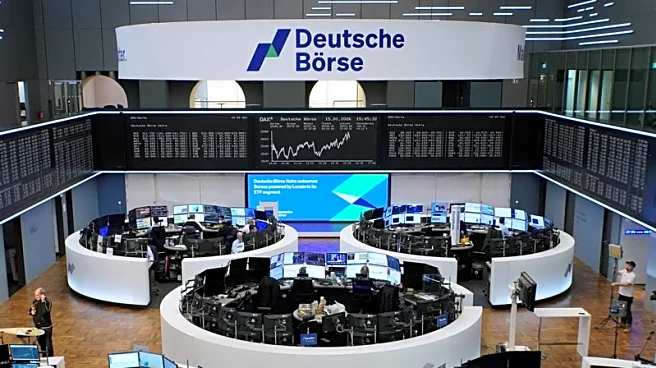Rapid Read • 8 min read
Ukraine's parliament has passed a controversial bill that curtails the autonomy of key anti-corruption agencies, leading to significant public protests in Kyiv. The legislation, signed by President Volodymyr Zelenskyy, grants the prosecutor general increased authority over investigations conducted by the National Anti-Corruption Bureau of Ukraine (NABU) and the Specialised Anti-Corruption Prosecutor’s Office (SAPO). Critics argue that this move consolidates power in the hands of the president and allows for potential government interference in high-profile corruption cases. The European Union has expressed concern, labeling the decision as a 'serious step back' for Ukraine's anti-corruption efforts. The protests in Kyiv represent a rare display of antigovernment sentiment since Russia's full-scale invasion of Ukraine.
AD
The passage of this bill is significant as it impacts Ukraine's ongoing efforts to combat corruption, a crucial factor in its bid to join the European Union and secure continued Western aid. The legislation is seen as undermining the independence of anti-corruption bodies, which are vital for maintaining transparency and accountability within the government. This development could potentially hinder Ukraine's geopolitical ambitions and its ability to distance itself from the legacy of Russian influence. The public protests and criticism from influential Ukrainians highlight the domestic opposition to the government's approach, which could affect political stability and international relations.
The immediate consequence of the bill's passage is the potential for increased government control over corruption investigations, which may lead to further public unrest and international scrutiny. The protests in Kyiv could escalate if the government does not address the concerns raised by citizens and international bodies. The European Union and other Western allies may exert diplomatic pressure on Ukraine to reconsider the legislation or implement measures to ensure the independence of anti-corruption agencies. The situation may also influence future political decisions and cabinet reshuffles within President Zelenskyy's administration.
The deeper implications of this legislative change include potential shifts in Ukraine's political landscape, as the consolidation of power within the president's circle may lead to reduced checks and balances. This could affect Ukraine's democratic processes and its relationship with Western allies, who prioritize transparency and anti-corruption measures. The move may also impact Ukraine's societal trust in government institutions, as citizens express concerns over the erosion of democratic principles and accountability.
AD
More Stories You Might Enjoy













